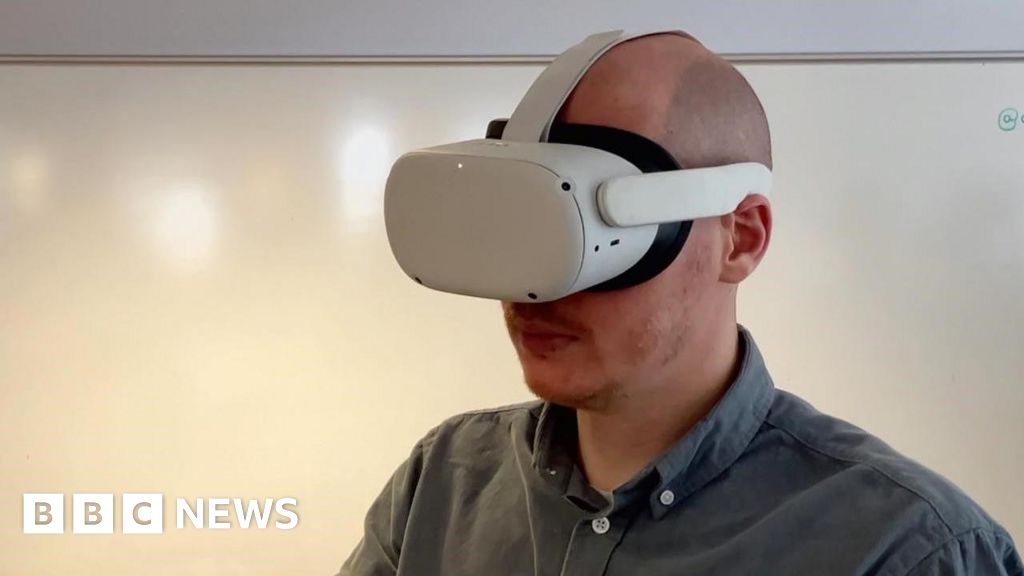meet-the-med-school-dropouts-using-ai-to-train-clinicians
SimCare founders Vrishank Saini and Tigran Bdoyan
SimCareTwo years ago, Canadian entrepreneur Vrishank Saini thought his future was all mapped out. Enrolling at the University of Chicago’s medical school, he was expecting to pursue a career as a doctor. Then fate, in the form of an exam setback, intervened, ultimately prompting Saini to pursue a different path as the founder of SimCare AI; today, the healthcare training company is announcing it has secured $2 million of seed funding as it continues to scale.
Saini’s change of direction came after failing a key pre-med exam. “I went online to try to identify resources that would help with the re-sit, but the tutoring packages I found cost $9,000, which I didn’t have,” Saini recalls. “I decided to build something for myself.”
That’s exactly what he did. Teaming up with fellow student Tigran Bdoyan, Saini developed an artificial intelligence (AI) tool on which he could practice the techniques he needed to pass the exam. Essentially, Saini and Bdovan built AI-powered patients enabling trainee doctors and other clinicians to hone critical skills such as communications.
The tool worked so well that when Saini resat the exam, he went from being one of the worst performers to one of the best. By then, however, he and Bdovan had realised they had stumbled on an idea with significant commercial potential, with more than 2,500 other students signing up to use it. The two students dropped out of the University of Chicago to try to develop the tool into a fully-fledged business.
SimCare AI represents the fruits of their labour. The two founders have now built a suite of AI tools to support students going through different types of medical training. The company works with a number of leading universities and healthcare providers, but also with businesses in the tele-health sector, which also need to train up significant numbers of medical staff.
“We’re focused on a huge pain point in medical training,” Saini adds. “It is so difficult to give students exposure to the patient interactions they need to learn new skills and require competencies, but we solve that problem with AI.”
That use case has seen SimCare gain traction with customers very quickly – the company is on target to hit an annualised revenue run rate of $4 million by the end of the year and is already turning a profit. Critically, the company has also won support from accreditation bodies and healthcare authorities that might have been expected to take a more conservative view of new technologies. “They recognise this as a major pain point too,” Saini explains.
SimCare is also attracting interest from investors. An initial application to the YCombinator accelerator programme last March was rejected, but the company subsequently picked up $500,000 of funding from the organisation. That enabled Saini and Bdovan to get the business up and running – and to start winning customers and securing testimonials.
“SimCare AI has seamlessly integrated our vast library of publications and videos on communication with an innovative program that allows providers to engage in advanced, simulated patient interviews with a virtual avatar,” says Douglas A. Drossman, Professor Emeritus of Medicine and Psychiatry at the University of North Carolina. “This approach enables providers to gain valuable insights into complex psycho-social issues through the use of sophisticated interview techniques; additionally, the program provides real-time feedback, allowing providers to continuously refine their skills.”
The founders now hope to build on these early successes, with today’s seed round providing the funding they need to expand recruitment and step up outbound marketing activity. The round is led by Y Combinator and Drive Capital, with participation from Harper Court Ventures Fund, Singularity Capital, Triple S Ventures, Goodwater Capital, Asymmetry Ventures, Sand Hill North and Transpose Platform.
Molly Bonakdarpour, a partner at Drive Capital, argues that SimCare is addressing a clear need in healthcare training. “In just four months, they’ve demonstrated strong early impact, delivering measurable returns on investment for customers,” she says. "We’re impressed with their vision and execution and look forward to supporting their continued growth in AI-driven healthcare solutions.”











